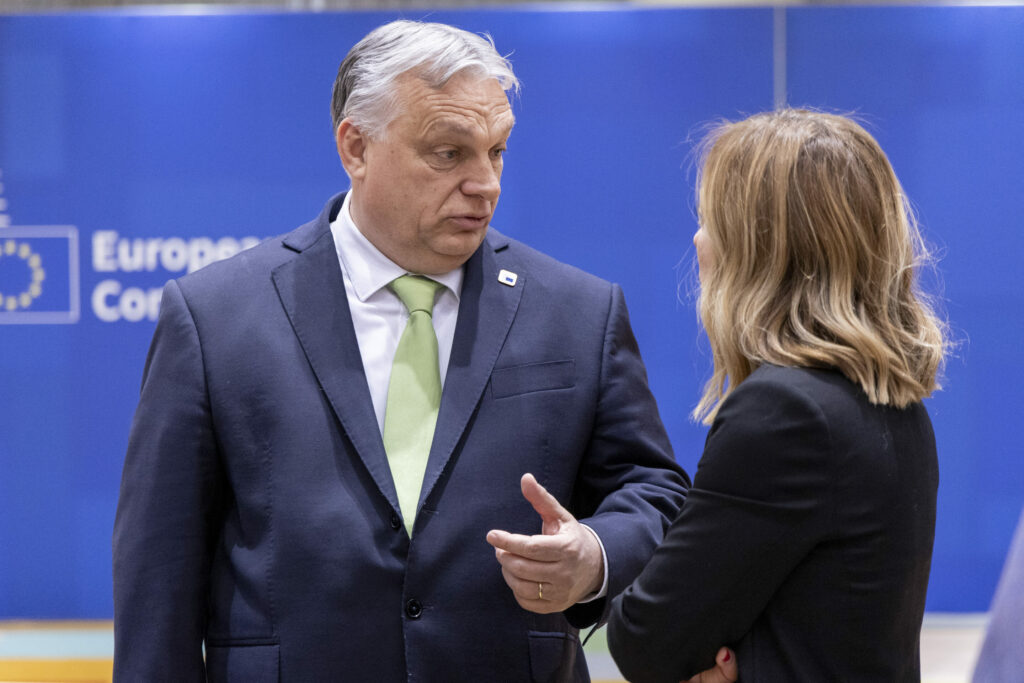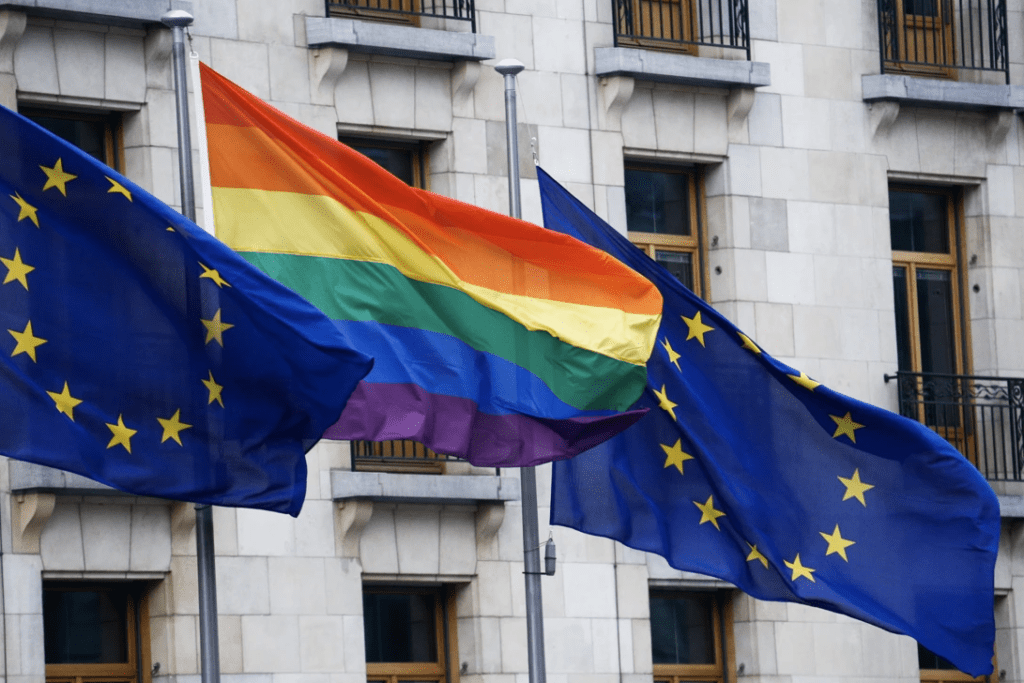The Court of Justice of the European Union (CJEU) will hear the case against Hungary's "anti-LGBTQ propaganda" law brought before the court by the European Commission 16 EU countries and the European Parliament. It is the "largest human rights case in EU history," according to several human rights organisations.
The Hungarian law, which bans access to content that "depicts or propagates divergence from self-identity corresponding to sex at birth, sex change or homosexuality” to minors, is being challenged.
"We are seeing a cross-fertilisation of this type of legislation across EU Member States. We are seeing pending bills in Romania, Slovakia and Italy, and laws that have been passed in Bulgaria this summer," Esther Martínez González, director of pan-European human rights organisation RECLAIM, told The Brussels Times.
Russian destabilisation campaign
Initiated by the Hungarian Prime Minister Viktor Orbán's right-conservative ruling party Fidesz, the law translates into bans on broadcasting LGBTQ content before 22:00, on advertisements featuring LGBTQ content, and on inclusive sex education.
Additionally, books with LGBTQ content may not be on display in shopping windows and must be wrapped in foil and sold separately from children's books. LGBTQ-themed goods may also not be sold within 200 metres of schools and churches.
Disinformation campaigns to prevent comprehensive sex education and LGTBQ rights in general are spreading across the EU, Martínez González said. She explains that whilst some anti-LGBTQ sentiment "grows organically", other elements are "part of Russia's destabilisation campaign against the EU and Member States, and its polarisation campaign of European societies."
As a result, "The stakes are very high," the civil rights campaigner warns. "Once Hungary has been found to violate EU law, that sets a precedent for other countries."

Hungarian Prime Minister Viktor Orbán during the European Council summit, Thursday 21 March 2024 in Brussels. Credit: Belga/Nicolas Maeterlinck
Belgium played a central role in starting the CJEU proceedings, as it was the first country to join the European Commission, followed by Luxembourg and the Netherlands. The Belgian non-profit Forbidden Colours, which supports initiatives for LGBTQ people, labelled the lawsuit "the biggest human rights case in EU history."
Forbidden Colours previously denounced the "lack of leadership from France and Germany" – which both waited until the very last moment to support the lawsuit.
This case will now see all 27 CJEU judges ruling, something that happens in just 0.12% of cases. "This is a very large case raising some constitutional matters that are still not settled. The President of the court has therefore decided that all the judges must be there to rule on this particular case," said RECLAIM's EU Legal Advisor Alejandro Menéndez Fernández.
Unlike the court in Strasbourg, the CJEU in Luxembourg has the power to issue along with its rulings. "We find that when you put a price on these violations, the chance of Member States backpedalling is much higher," Martínez González added.
A verdict for the future
The ruling also sets a precedent as it is binding, meaning that a positive ruling could put a definitive stop to these types of laws.
RECLAIM, Forbidden Colours and other LGBTQ rights organisations are "very confident" that the Court will rule to protect LGBTQ people. "This ruling would be important not only to repeal the law but also to prevent similar laws in other Member States of the EU such as Poland or Romania."
While the highly influential Advocate General's opinion on the case is already expected in spring, the official verdict is not expected until summer 2025.

